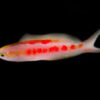The Role of Dragons in Chinese Agricultural Beliefs about Fertility and Reproduction

In Chinese culture, the dragon is a potent symbol of power, strength, and good fortune, but it also has significant ties to fertility and reproduction. These attributes are not only linked to the growth of families and individuals but also extend to the prosperity of crops and agricultural lands. The dragon’s connection to fertility in Chinese agricultural beliefs is rooted in ancient mythology, religious practices, and the spiritual reverence for nature. For centuries, the dragon has been a symbol of abundance and growth, playing a crucial role in ensuring the success and fertility of the land, the crops, and the people who depend on them. This article will explore the role of dragons in the agricultural fertility beliefs of China, focusing on how they are connected to farming, crop growth, and the natural forces that sustain life.
1. The Dragon as a Fertility Symbol in Chinese Agriculture
In traditional Chinese culture, fertility was considered the foundation of life and prosperity, especially in rural communities where agriculture was the cornerstone of survival. In this context, the dragon emerged as a powerful symbol of fertility, both in the human and natural realms. Its symbolic association with water and rain, essential elements for crop cultivation, positioned the dragon as an essential guardian of fertility.
The dragon’s connection to fertility can be traced back to its mythological status as a creature capable of controlling water. Water is a critical component for the growth of crops in China, where much of the agricultural land depends on rainfall or irrigation systems. The dragon, often depicted as a water deity, was believed to have the ability to summon rain and ensure that crops received the nourishment they needed to flourish. As such, the dragon was viewed as a guardian of agricultural fertility, ensuring that the land remained fertile and productive.
2. The Dragon’s Role in Weather and Rain Rituals
In Chinese farming traditions, rain was regarded as the key factor in agricultural success. Without rain, crops would fail, and the livelihood of farmers would be in jeopardy. To ensure sufficient rainfall, ancient Chinese farmers performed rituals and ceremonies to honor the dragon, hoping to appease this celestial being and receive its blessings for rain.
The dragon’s association with rain is rooted in the belief that it controlled the weather. In many myths, dragons were said to reside in lakes, rivers, or the oceans, and they had the power to summon storms and bring rain to parched lands. The Dragon Kings, who were revered as gods of water, were thought to rule over these realms. Farmers, especially during the planting and growing seasons, would offer prayers and sacrifices to the Dragon Kings, asking for rain to nourish their crops.
These rituals were often conducted during important festivals or agricultural ceremonies, such as the Dragon Boat Festival, held annually in the summer. The Dragon Boat Festival not only celebrated the dragon’s power but also symbolized the connection between the dragon and agricultural fertility. During the festival, farmers would perform dragon dances, race dragon boats, and make offerings to the gods, all in the hopes of invoking the dragon’s protection and blessings for the harvest.
In some areas, the dragon’s influence extended to the fertility of specific crops. For example, the dragon was believed to have a special connection to rice, one of China’s staple crops. According to legend, the dragon would bless the rice fields, ensuring an abundant harvest. During the rice-growing season, farmers would offer sacrifices to the dragon to promote the fertility of the fields and encourage the healthy growth of the crop.
3. The Dragon as a Symbol of Agricultural Growth and Abundance
The dragon’s influence on fertility was not limited to the provision of rain; it also symbolized the overall growth and prosperity of agricultural life. As a representation of nature’s forces, the dragon was seen as a nurturer and guardian of all stages of the agricultural process, from planting to harvest.
In Chinese folklore, the dragon was often depicted as a benevolent force that ensured the fertility of the land. Stories tell of dragons who would rise from the water to bless the earth and ensure that the soil remained rich and productive. It was believed that the dragon’s presence in the natural world helped regulate the balance of nature, allowing crops to grow in harmony with the environment. This connection to nature made the dragon a revered figure in agricultural rituals, where it was seen as the protector of farmers’ livelihoods.
The dragon was also linked to the concept of abundance. Its role in providing water and nurturing the land meant that it was associated with the prosperity that comes from a bountiful harvest. The dragon’s power to bring abundance extended beyond crops and farming—it was a symbol of fertility and prosperity for families as well. In this context, the dragon was not only a force for agricultural growth but also a symbol of the growth of families, livestock, and communities.
4. Dragons in Chinese Fertility Myths and Folk Tales
In addition to its role in agricultural practices, the dragon also played a significant part in Chinese fertility myths and folk tales. These stories often depicted dragons as the divine beings who brought fertility and life to the earth, linking them to the cycle of birth, growth, and renewal. These myths reinforced the dragon’s role as a symbol of fertility and creation.
One of the most famous fertility myths involving the dragon is the story of the “Dragon and the Pearl.” According to the tale, a dragon possessed a magical pearl that had the power to bestow fertility and abundance on the land. When a farmer discovered the pearl, the dragon appeared to him and, in gratitude for the farmer’s kindness, gave him the ability to control the elements and ensure a prosperous harvest. This story is often interpreted as a metaphor for the vital role that nature plays in ensuring agricultural success and the interdependence between humans and the forces of nature.
Another popular legend is the tale of the “Nine Dragons,” which tells the story of nine dragon brothers who worked together to bring fertility and prosperity to the land. These dragons, each representing a different aspect of nature, were said to have control over rain, wind, and sunlight, all of which were essential for agricultural fertility. According to the legend, when the dragons worked together in harmony, the earth would become fertile, and crops would grow plentifully.
These myths highlight the close relationship between the dragon and the fertility of the land, reinforcing the idea that dragons were powerful beings who could ensure the success of farming and the prosperity of the people.
5. The Role of Dragons in Fertility Festivals and Agricultural Rituals
In ancient China, fertility festivals and agricultural rituals played a crucial role in ensuring the success of the farming year. Many of these festivals were dedicated to honoring the dragon and other deities associated with fertility. These celebrations were not only religious events but also communal gatherings that allowed farmers to seek divine blessings for their crops.
One of the most important festivals for agricultural fertility was the Spring Festival, which marked the beginning of the planting season. During this time, farmers would perform rituals to honor the dragon and request its blessing for rain and good weather. The dragon dance, a colorful and vibrant performance involving a dragon-shaped puppet, was a central feature of the festival. The dance was believed to invoke the dragon’s power and bring prosperity to the fields. The festival also included offerings of food, incense, and other symbolic gifts to appease the dragon and other fertility gods.
Another important festival was the “Qingming Festival,” or Tomb Sweeping Day, which occurred in April and was associated with the start of the agricultural season. During this festival, farmers would visit the graves of their ancestors and offer sacrifices to the spirits of the land. The rituals were meant to honor the ancestors and seek their blessings for fertility and a good harvest. In some regions, dragon-shaped lanterns or effigies would be displayed during the festival, symbolizing the dragon’s connection to the earth’s fertility.
These fertility festivals and rituals were an essential part of the agricultural calendar, reflecting the deep spiritual connection that farmers had with nature and the belief that the dragon played a vital role in ensuring the prosperity of their crops and families.
6. The Dragon and the Concept of Cyclical Fertility
The dragon’s connection to fertility in Chinese culture is also tied to the concept of cyclical growth. In agricultural societies, fertility was not seen as a one-time event but as an ongoing cycle that needed to be nurtured and maintained. The dragon’s role in this cycle was to ensure that fertility was constantly renewed, ensuring that crops would grow year after year.
This cyclical nature of fertility is reflected in the seasonal rituals and celebrations that honor the dragon. These events, which take place at specific times of the agricultural year, are meant to coincide with the natural rhythms of growth and renewal. By aligning their agricultural practices with these rhythms, farmers hoped to maintain the balance of nature and ensure the continued fertility of the land.
In Chinese philosophy, particularly in the teachings of Taoism, the concept of balance and harmony with nature is central to the understanding of fertility. The dragon, as a symbol of cosmic forces, is seen as a representative of this balance. It is through this balance that fertility is sustained, and life is perpetuated.
7. Conclusion: The Enduring Legacy of the Dragon in Chinese Agricultural Beliefs
The dragon’s role in Chinese agricultural fertility beliefs is a testament to the deep spiritual connection between people and the natural world. From its associations with water and rain to its symbolic power in fertility rituals, the dragon has been a guardian of agriculture and prosperity for centuries. Through myths, folklore, and agricultural practices, the dragon has remained a potent symbol of fertility, ensuring the success of farmers and the flourishing of the land.
As Chinese society has evolved, the dragon’s influence on agriculture has remained an important part of cultural identity, especially in rural communities. Whether through fertility festivals, rain rituals, or the continued reverence for the dragon in modern culture, its symbolic power continues to shape the spiritual and agricultural landscape of China.
In understanding the role of the dragon in Chinese agriculture, we gain insight into the broader cultural and spiritual beliefs that have shaped Chinese society for millennia. The dragon, as a symbol of fertility, is a reminder of the delicate relationship between humans and nature, and the eternal cycle of growth and renewal that sustains life.

